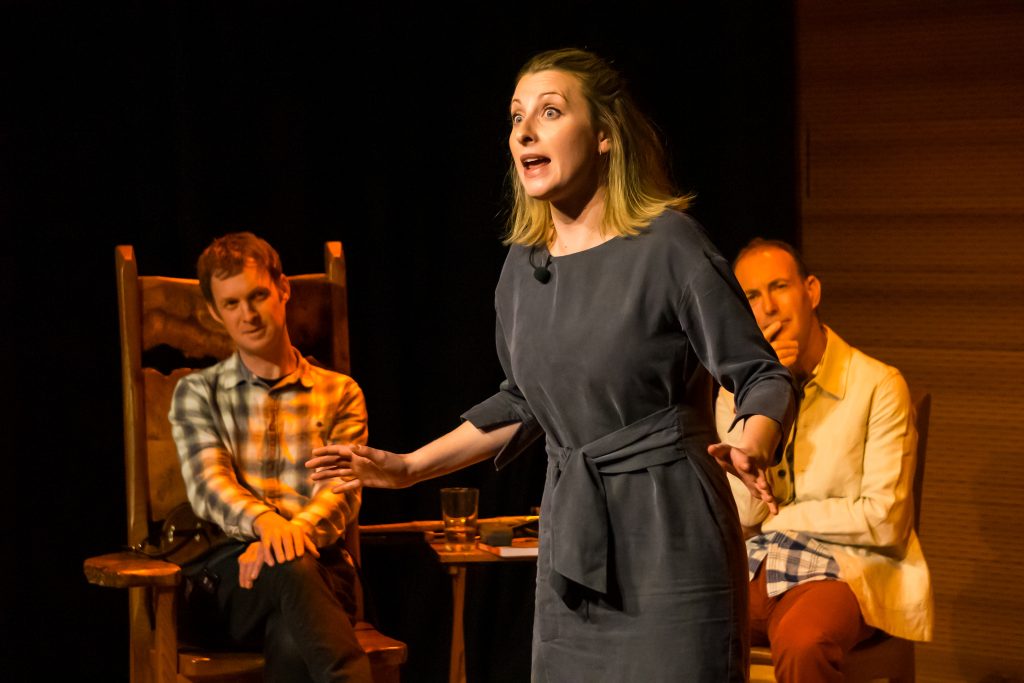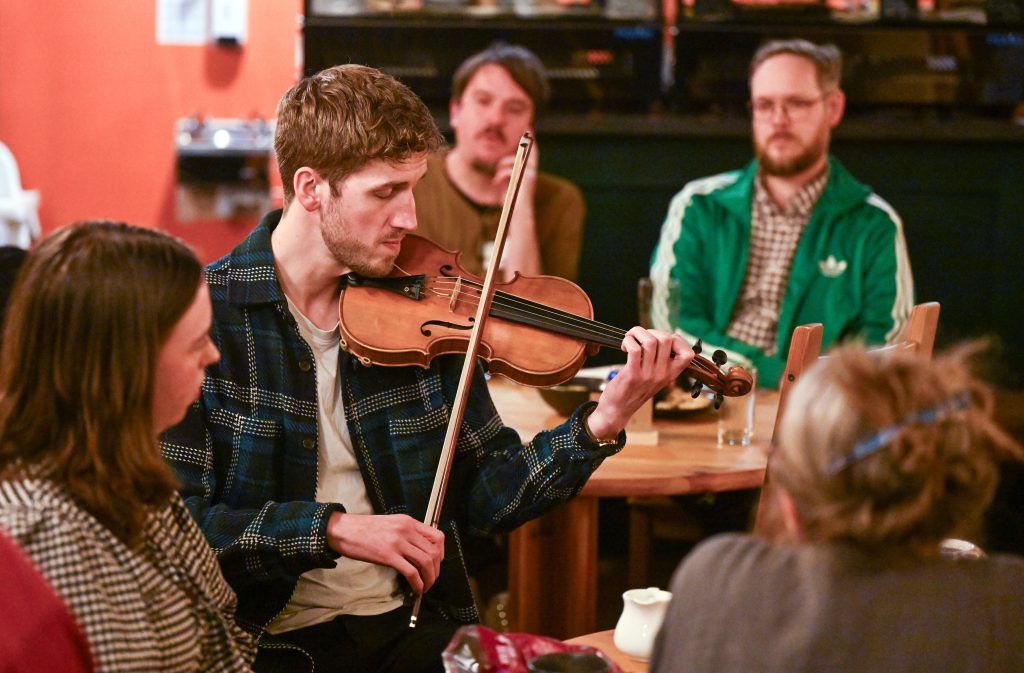 The Tannahill Weavers – born of a session in Paisley and named to acknowledge the town’s historic weaving industry and local poet laureate Robert Tannahill – have made an international name for themselves with their special brand of Scottish music, blending the beauty of traditional melodies with the power of modern rhythms.
The Tannahill Weavers – born of a session in Paisley and named to acknowledge the town’s historic weaving industry and local poet laureate Robert Tannahill – have made an international name for themselves with their special brand of Scottish music, blending the beauty of traditional melodies with the power of modern rhythms.
‘As close to perfect as it gets in an imperfect world.’ (Sing Out!)
The Tannahill Weavers are the opening act of TradFest at The Pleasance Edinburgh Folk Club on Wednesday 29 April at 8pm, where you will be guaranteedfire-driven instrumentals, topical songs, and original ballads and lullabies, with plenty of Robert Tannahill echoes. Then you can enjoy a session with Fred Freeman who presents an opportunity to get to know more about the man and his musical influences.
A weaver by trade and songwriter/poet by calling, Robert Tannahill (1774-1810) of Paisley was an avid self-educator and recognised man of letters, founding the Paisley Burns Club in 1805 and developing one of the early Trades Libraries in Renfrewshire, despite his modest means. Over 100 songs constitute his great legacy, of a quality akin to Robert Burns.
 With this legacy in mind, and in a similar vein to his definitive 12-volume series of Burns recordings, Dr Fred Freeman presents Re-Source: The Tannahill Irish Songs – Art as Life on Friday 8 May to showcase Tannahill’s work firmly in the context of Scotland’s folk scene today and discuss Tannahill’s often violent involvement in the 18th century debate over Irish emigration to Scotland, as Freeman explains:
With this legacy in mind, and in a similar vein to his definitive 12-volume series of Burns recordings, Dr Fred Freeman presents Re-Source: The Tannahill Irish Songs – Art as Life on Friday 8 May to showcase Tannahill’s work firmly in the context of Scotland’s folk scene today and discuss Tannahill’s often violent involvement in the 18th century debate over Irish emigration to Scotland, as Freeman explains:
“Tannahill, the Paisley weaver, penned a unique collection of songs in defence of the sorely dispossessed Irish immigrants settling in the west of Scotland. Moreover, as a Lowland Presbyterian defending mainly Irish Catholics, he was, in so doing, sticking his neck out in a way that nobody before or after has done in the whole of the Scottish tradition in literature and song.”
Tannahill was fanatical about rhythm and the structure of Scottish national musical forms producing a fine selection of upbeat songs set to traditional strathspeys, jigs, and reels, – while the slower, pastoral tunes are persuasive essays tinged with a dark romanticism.
Resource this magnificent influence who is, just like TradFest’s motto, rooted in the past yet resonating in the present.






